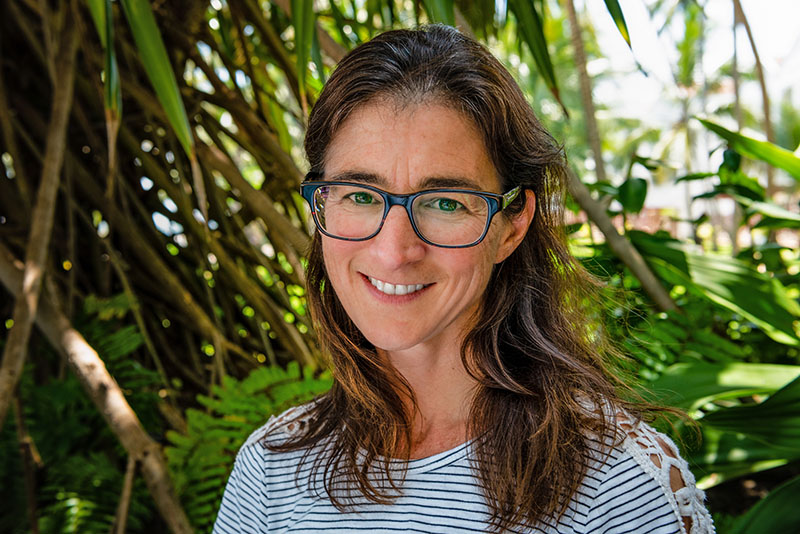
Lora Iannotti, PhD
Washington University in St. Louis
Tell us about your background and international/research-for-development interests.
The Ethiopian famine of the 1980s and a summer spent in Haiti (1990) were two events that probably set the course of my professional life. Today, I rarely work on emergency or humanitarian crises of acute malnutrition, but I do focus on the issue of chronic hunger afflicting people in nearly all parts of the world. For several years, I worked for the Food and Agriculture Organization of the United Nations and on United States Agency for International Development-funded food security and development projects. Then I later pursued a doctorate at Johns Hopkins Bloomberg School of Public Health where I learned more about human biology and how public health problems, such as infectious disease, influence nutrition. In my view, we need all kinds of angles to solve nutrition problems!
How does your background in nutrition at Washington University in St. Louis inform your approach at the Fish Innovation Lab?
At Washington University I am founding director of the E3 Nutrition Lab, which represents my approach to nutrition research broadly, and to the Fish Innovation Lab more specifically. The E3 Nutrition Lab aims to improve maternal and child nutrition globally through interventions that are environmentally sustainable, evolutionarily appropriate, and economically affordable. Fish were integral to the hominin diet in our evolutionary past, and may be affordable and sustainably produced under the right circumstances. Under the Fish Innovation Lab platform, I hope to promote fish nutrition applying this framework.
In your view, what are the most pressing challenges related to food and nutrition security worldwide and what are some ways we can overcome these challenges?
From my point of view, the two most pressing challenges related to nutrition security globally are achieving sustainable food systems and eliminating nutrition disparities. We have to figure out how to nourish well 10 billion people while simultaneously protecting our planet. I believe these two challenges are intertwined, and thus, the solutions should also be connected. As we work towards moderation and dietary diversity in some populations, we ensure access and dietary diversity in others.
What do you wish other people knew about fish and/or food security?
Three-quarters of our planet is covered in water, yet less than 20% of the world’s population rely on fish as their primary animal source food. Fish foods contain important nutrients (n-3 fatty acids, zinc, iron, vitamin A, etc.) that are critical for child growth and brain development. Evidence shows that fish protect against a range of poor health outcomes through the life cycle. Finally, fish production can also lead to improved livelihoods that enable households to purchase more and better foods and access health care and education.
If you weren’t a professor and higher education administrator, what other careers might you have pursued?
I would be an astronaut (see hobby below) or a geologist—I love rocks and minerals, as evidenced by my nutrition focus on iron, zinc, selenium, iodine!
What are your hobbies or activities outside of work?
In my limited time outside work, I have two favorite hobbies—space and plants. I could spend hours looking through my telescope at stars and planets (though still as an amateur) and exploring the NASA website. Plants are my other obsession. I am not entirely sure this qualifies as a hobby because I have clear bias for growing herbs and vegetables—essentially nutritious edible plants!
What is on your bucket list? (What do you hope to do, accomplish, see, experience, etc. in your lifetime that you haven’t yet?)
In all my privileged years of travel to exotic places, I rarely took time to visit any sites beyond my research projects, usually because I was in a hurry to return to my family and work. In the next phase of life, however, I will take time to see some natural and human-made wonders.
If you would like to, tell us about your family, where you are from, and any personal details you would like to share.
I have three children, Arianna (23 years), Isabella (21 years), and Elias (18 years), and a wonderful husband, Ray (age not revealed).
Finally, I have completely enjoyed participating on the Fish Innovation Lab management team. It has been among my favorite collaborative research endeavors.
